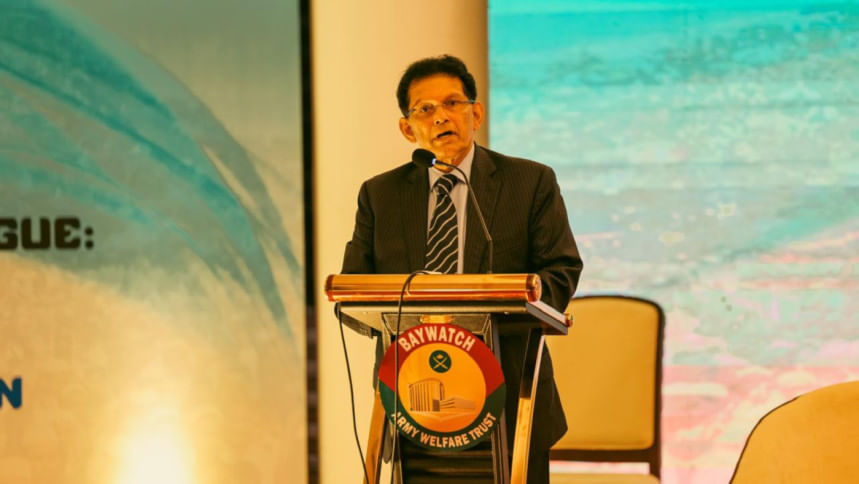‘Engaging all to resolve Rohingya crisis’

The Stakeholders' Dialogue has once again reflected the Rohingyas' clear and unmistakable yearning to return to Myanmar, said National Security Adviser and High Representative for the Rohingya Issue Khalilur Rahman yesterday.
They want to return to their homeland with dignity and safety, with the restoration of their rights and accountability for atrocities committed against them, he said.
To address the ongoing crisis, he said he has been engaging with all key actors, including the Arakan Army and the Myanmar government.
"A solution cannot be achieved by leaving out any important actor. Negotiations must involve everyone in order to be effective. If one party is excluded, any agreement reached is likely to fail or collapse," he said, while addressing the concluding session of the international conference, "Stakeholders' Dialogue: Takeaways to the High-Level Conference on Rohingya Situation", held in Cox's Bazar.
Khalil also underscored the historic participation of the Rohingya community at the dialogue, marking the first time they collectively presented their perspectives under one roof.
"The upcoming UN High-Level International Conference on the Rohingya issue will be held on September 30 at the UN Headquarters. In preparation, we organised this dialogue to hear the voice of the Rohingya directly."
Chief Adviser Prof Muhammad Yunus opened the session with a seven-point proposal expected to shape discussions at the UN meeting.
Khalil stressed that international aid is declining, which is threatening essential services such as food, healthcare, and education.
Trust between parties, he said, remains essential for a sustainable solution, and the dialogue marked a significant step in fostering confidence among stakeholders.
Khalil raised concerns over the criminal activities inside Myanmar that threaten regional stability.
He also clarified that ICC processes are ongoing and do not require acceleration from Bangladesh. Bangladesh has submitted lists for approximately 8,00,000 Rohingya, with Myanmar confirming over 1,80,000 as eligible for return, and further verification is ongoing, he added.
The dialogue also highlighted systematic persecution, and discriminatory laws such as the 1982 Citizenship Law as root causes of the crisis.
Panelists cited ongoing human rights violations in Rakhine, including indiscriminate attacks, arson, mass killings, rapes, and forced conscription by both the Myanmar Armed Forces and the Arakan Army.
They called for proactive roles from neighbouring countries, ASEAN, the UN, and concerned partners.


 For all latest news, follow The Daily Star's Google News channel.
For all latest news, follow The Daily Star's Google News channel. 



Comments